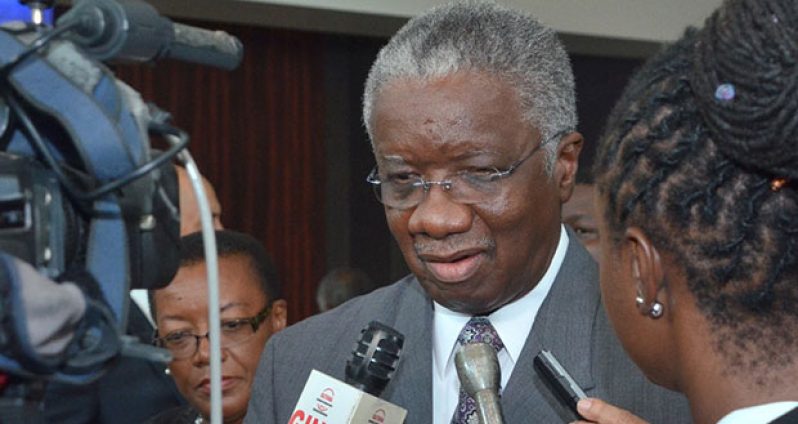– Barbados PM
By Derwayne Wills
THE Prime Minister of Barbados, Freundel Stuart has blamed the failure of CARICOM’s mechanisms, the so-called “organs,” for the delay in developing the Caribbean Single Market and Economy (CSME).

At the opening of their annual summit here in Georgetown, some Prime Ministers pointed to the pessimism with which the region’s people view the 15-nation bloc.
At Tuesday’s plenary meeting, Barbados presented a report from CARICOM’s Commission on the Economy, chaired by Barbadian Senator, Darcy Boyce on the state of the CSME.
When questioned on the issue, President David Granger directed all questions to the Chairman of the Commission.
The report on the status of the CSME was supposed to be submitted to the Council for Finance and Planning (COFAP), but according to the Barbadian Prime Minister, that report was instead presented to the Heads of Government due to the failure of COFAP to have regular meetings.
Stuart went on to note that in similar fashion, CARICOM’s legal affairs committee does not have regular meetings. “That is the committee of Attorneys General that is supposed to analyse and to advise on the instruments that we draft for final signature by Heads of Government so that there could be onward movement with the decisions that we take.”
Barbados’s government has made a passionate plea for regional leaders to recommit to the full functioning of the 15-member trading bloc established in 1973. “We spoke very strongly on these issues…and I think that we were very clearly understood.”
He said his country’s position was “respectfully received and endorsed” as he expressed optimism that these shortcomings will be addressed soon.
Guyana is slated to host an inter-sessional meeting on the CSME in February 2017. Stuart anticipates that this meeting will see his government pushing for a redress of the blockages affecting the CSME.
“I accept that there is some lethargy in the system,” said Antigua and Barbuda Prime Minister Gaston Browne who was approached for comment by this newspaper. “But it does not mean that CARICOM is not working for the CARICOM people.”
Browne, a former CARICOM chairman, said the region’s people continue to benefit from CARICOM. He did also acknowledge that there areas for improvement, especially as it relates to meetings of the bodies, which help to drive CARICOM’s agenda.
“We have to accept that there are weaknesses, but it is up to us as leaders to continue to recommit to ensuring that CARICOM, as an economy and even a social construct, continues to work in the best interest of Caribbean people,” Browne said.





.jpg)








